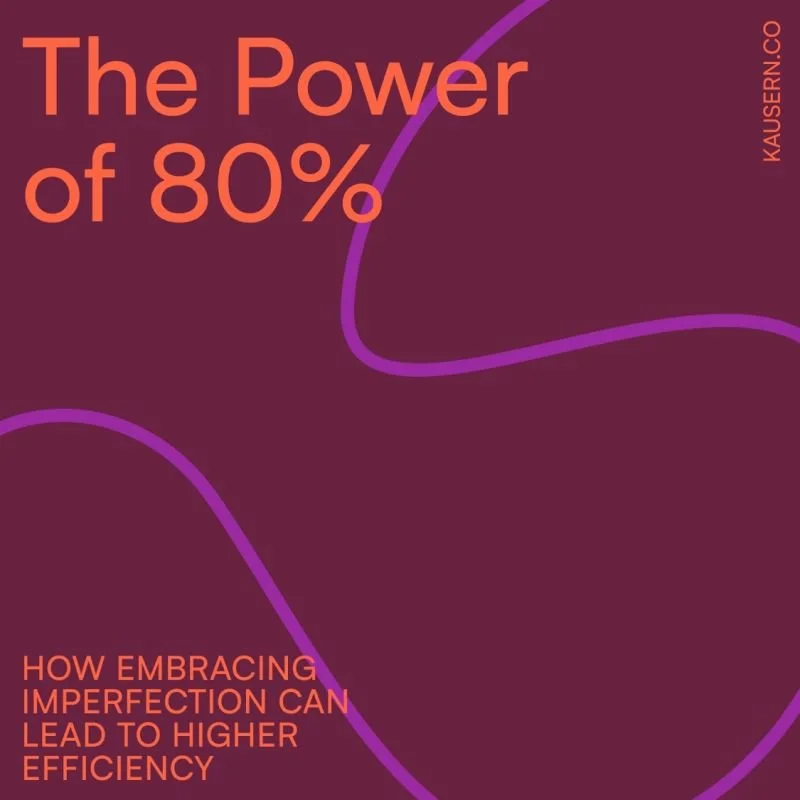The power of 80%
Getting 80% done is better than 100%? This idea might seem counterintuitive to progress but there is some wisdom behind this mantra.🦉
You see, the pursuit for 100% often leads to delays, burnout, and even missed opportunities. In contrast, focusing on reaching the 80% mark acknowledges the diminishing returns associated with achieving absolute perfection.
Confused? Don’t worry, so was I, when I first came across this concept. Allow me to explain.
If you think about it, the bulk of our work is typically completed during the initial 80%. The remaining 20% often involves us trying to fine-tune the details that may not significantly impact the overall outcome.
Spending too much time on the remaining 20% can possibly result in:
❌ Unmet consumer expectations:
In certain cases, consumers may not necessarily demand perfection. They might value prompt delivery and functionality over our exhaustive fine-tuning.
❌ Losing out to competitors:
Concentrating on the last 20% can result in extended timelines. In the time we spend fine-tuning the details, our competitors may have already launched a similar product or idea, potentially capturing more market share.
❌ Burnouts and demotivation:
The constant pursuit of an elusive 100% perfect state may demotivate us, particularly if the goalposts keep moving. It will especially hit harder for those who easily succumb to analysis paralysis.
Let’s take a page from the tech industry where rapid development cycles are the norm. Tech companies often release products that are not flawless, but are functional and meet the majority of user needs. Subsequent updates address the remaining 20% of issues, ensuring that users benefit from the product sooner rather than later.
The Okinawan culture in Japan has a similar concept called Hara Hachi Bu that encourages mindful eating and stopping when 80% full. I’m sure this Zen concept can also be applied to many other areas of their life.
It's crucial to acknowledge that the 80% rule does not advocate for mediocrity or the pursuit for excellence; rather, it promotes a pragmatic approach to achieving our goals. By focusing on the essential aspects that contribute most significantly to success, we can move faster and allocate our time and resources accordingly to complete projects more efficiently. 🎯⏱️
Where else can you apply this concept in your life?

